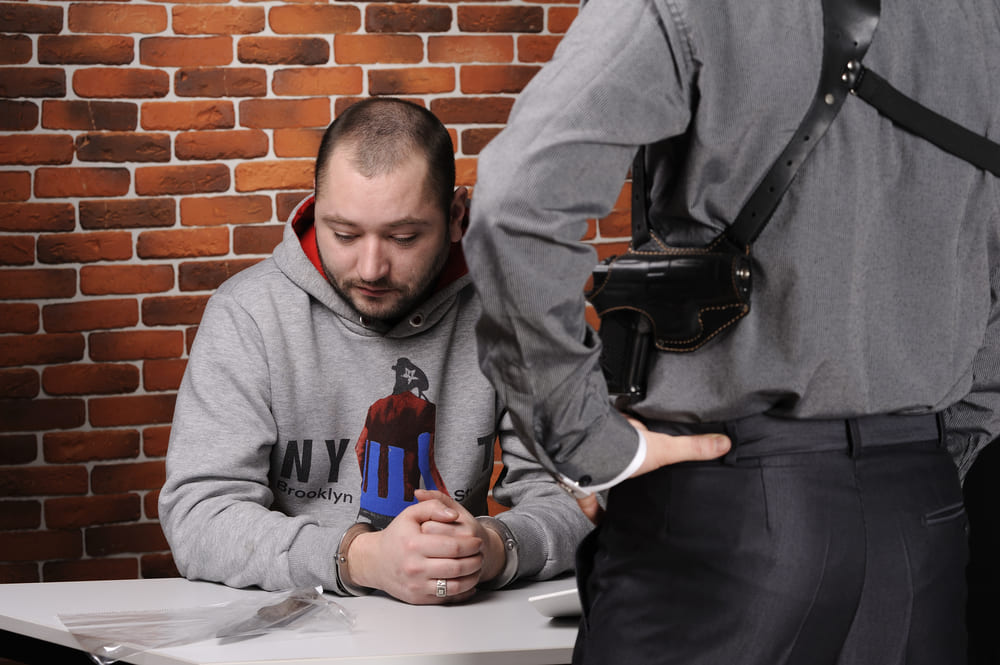
A Matter of Trust
From the time we are children, we are taught to respect law enforcement officers because they are the good guys. As adults, we tend to assume that means we can trust a police officer to not lie during the course of an investigation and/or questioning. That built-in trust is often intentionally used against a suspect when trying to get the suspect to provide incriminating information or even confess. Is that trust misplaced though?
A Confession Must Be Voluntary
For a confession to be admissible at trial it must have been freely and voluntarily given. When the State intends to use a defendant’s alleged confession against him/her at trial, a common defense tactic, therefore, is to claim the alleged confession was not voluntarily given. You might assume that if the police lied to the suspect in order to get that confession, the confession wasn’t voluntarily given – but you would be mistaken. In fact, courts have long held that the use of deception when interrogating a suspect does not automatically cause a confession to be considered involuntary. The court will look to the totality of the circumstances to determine if the deception was likely to cause a false confession.
When and How Can the Police Lie to a Suspect?
If you are being questioned for a major crime, the odds are very good that the law enforcement officer(s) doing the questioning is a detective who has lots of experience interrogating suspects. As such, you can almost count on at least some deceptive tactics being used during your “chat.” Separating the truths from the lies probably won’t be easy; however, it may help to be familiar with some common examples of when and how the police often use deception when trying to get a suspect to confess.
- Getting your DNA – there is no need to ask you nicely to submit to a DNA test if they can get a sufficient sample to test off the glass of water or can of soda they offered you.
- Claiming they have evidence that they don’t– they may claim your fingerprints were found at the scene or a paper trail was uncovered proving your involvement in the crime.
- Claiming a co-defendant confessed – this is a classic ploy – pitting two potential suspects against each other. They tell each one that the other has already confessed, making it pointless to remain silent. One, if not both, usually fall for it.
- The non-existent eyewitness – they may tell you that they have an eyewitness who puts you at the scene of the crime or who saw you commit the crime.
- The failed test ruse – telling a suspect they failed a polygraph is a favorite police tactic.
- Implicit threats – this one is tricky. They can say things like “your buddy will go to jail if you don’t tell us the truth.” They cannot threaten family members with harm nor can they threaten to remove them from your home.
- Explicit promises of help – they frequently offer to help you if you confess or provide them with useful information. Keep in mind, however, that only a prosecuting attorney can actually agree to a plea deal. While they can recommend offering a deal to a suspect, a law enforcement officer does not have the authority to make, much less promise, a deal.
In reality, you won’t know if a law enforcement officer is lying to you. Therefore, the best policy is to invoke your right to remain silent. Politely refuse to answer questions and ask for a lawyer. Keep asking, and keep refusing to answer questions – it could very well be the difference between a prison sentence or your freedom.
Contact a Murfreesboro Criminal Lawyer
If you find yourself a suspect in a criminal investigation, it is in your best interest to consult with an experienced Murfreesboro criminal lawyer at Bennett, Michael & Hornsby as soon as possible. Contact the team today by calling 615-898-1560 to schedule your appointment.
- Elder Financial Exploitation: How to Protect Seniors - April 12, 2024
- How to Obtain Guardianship of a Minor in Tennessee - April 2, 2024
- Why You Don’t Want to Leave Behind an Intestate Estate in Tennessee - March 28, 2024



